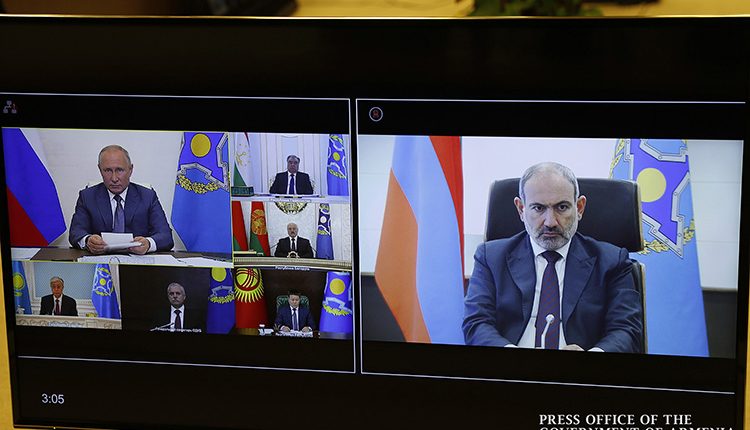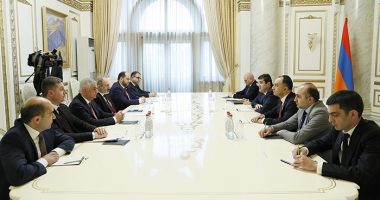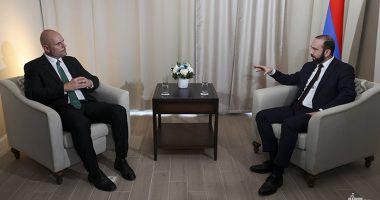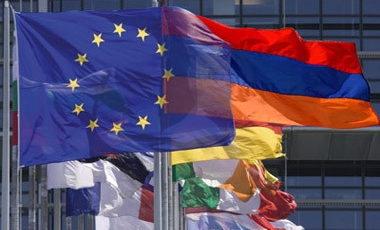MOSCOW — Russian President Vladimir Putin on Wednesday praised Prime Minister Nikol Pashinyan for agreeing to the “painful” ceasefire in Nagorno-Karabakh and said Russia and its allies should help him implement the Armenian-Azerbaijani agreement brokered by Moscow.
“Armenia and the Armenian people have endured a really difficult period in their history,” Putin said during a virtual summit of the Russian-led Collective Security Treaty Organization (CSTO). “The leadership of Armenia, the prime minister had to take very hard but necessary, for the Armenian people, decisions.
“I must say that those decisions were painful but, I repeat, necessary, and their adoption required the Armenian prime minister’s personal courage. This is obvious, and each of us participating in this meeting understands the extent of responsibility needed for making such decisions. He [Pashinian] took that responsibility.”
“And our task now is to support both the prime minister and his team in order to establish a peaceful life, ensure the implementation of all adopted decisions and help people [in the Karabakh conflict zone] who have found themselves in a difficult situation,” added Putin.
Addressing the CSTO summit from Yerevan, Pashinyan again thanked Putin for helping to stop the war with Azerbaijan and deploying Russian peacekeepers in Karabakh.
“The Russian peacekeeping contingent deployed along the line of contact in Nagorno-Karabakh and along the Lachin corridor, which provides communication between Artsakh and Armenia, today is the guarantor of the preservation of peace and security in the region,” Pashinyan said. In this regard, he pointed out the exceptional role of Russian President Vladimir Putin.
“Throughout all the 44 days of hostilities, we were in constant contact with Vladimir Putin and discussed the necessary measures to stop the bloodshed and protect the lives of people,” Pashinyan said.
He added that today too he is working very closely with the President of Russia to solve such problems as the search for the missing, the exchange of prisoners of war and other captives and the recovery of the bodies of the killed soldiers.










